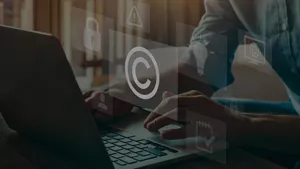Trademarks now also open to partial cancellation for non-use
As of June 12, 2023, trademarks in Argentina are also open to partial cancellation for non-use.

Partial non-use cancellation (lapsing) was incorporated to the Argentine Trademark Law in 2018 and will become effective as of June 2023. It aims at cancelling a trademark registration only regarding certain products or services for which the mark has not been used within 5 years before the motion has been filed. The trademarks subject to lapsing must have been registered for more than 5 years. This includes renewal registrations.
The motion will not proceed in connection with the goods or services for which the mark has been used nor against similar or related goods or services. Also, it will not succeed if the trademark has been used as a trade name in connection with goods or services related to the trademark registration.
The previous system allowed use on any product or service, or as part of a trade name, as a defense to avoid lapsing, which resulted in the so-called “defensive trademarks.” This will no longer be allowed.
It remains to be seen how the Trademark Office and, eventually, the Federal Courts will interpret what “related” means with respect to products or services. We expect that the decisions will favor the registered trademark when there is a degree of doubt regarding the relatedness of goods or services, since decisions that cancel rights merit a narrow interpretation (in favor of the registered trademark).
Third parties seeking partial non-use cancellation of a registered trademark must show legitimate interest, and while the burden to submit evidence of use is on the trademark owner, it is advisable to provide evidence of the alleged lack of use.
Use of the trademark to avoid lapsing can be proved with advertising material with the corresponding date, invoices showing the commercialization of products or services identified with such trademark, and preparatory acts such as advertising campaigns and samples, as long as they are followed by the launch of the product or service in a reasonable period.
Non-use cancellation actions, whether for the whole registration or only a part of it, are heard by the Trademark Office through administrative proceedings, and decisions may be appealed before the Federal Court of Appeals in Civil and Commercial Matters.
The Trademark Office has been experiencing a backlog in the prosecution and decision of non-use cancellation actions since 2018, when the amendment of the Trademark Law set out that non-use cancellation actions and invalidation actions, excepting those based on bad faith, would no longer be prosecuted and decided by Federal Courts. The delay in implementing the procedure and lack of personnel helped to create that backlog. However, the Trademark Office has recently appointed new examiners and staff to prosecute pending and new cases.
The new system should provide better room for newcomers to obtain their trademark registrations without facing blocking by unused trademarks. It should also caution trademark owners to considering narrowing down overbroad recitations of goods and services upon renewal in an effort to avoid irritating “paper” conflicts with third parties.
This insight is a brief comment on legal news in Argentina; it does not purport to be an exhaustive analysis or to provide legal advice.